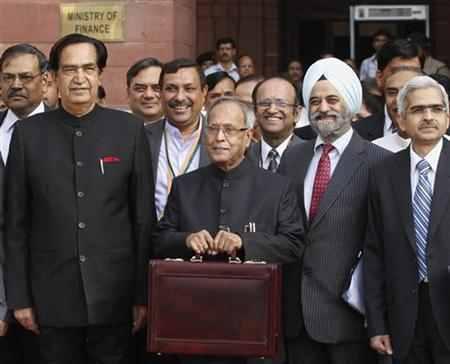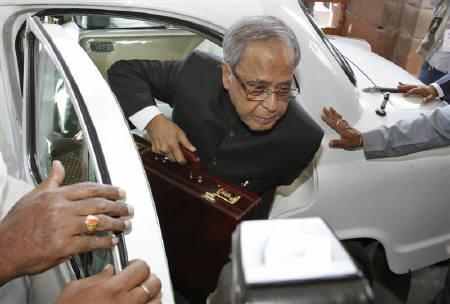Photographs: Vijay Mathur/Reuters
It has become clear that many things were wrong with the taxation proposals made in the 2012-13 Budget. In attempting to fix the fiscal deficit, the government decided it was necessary to increase the tax base.
However, it made the elementary mistake of assigning excessive discretion to tax assessment authorities across the board; it seemed the Budget had not been drafted with any opinions but those of tax bureaucrats in mind. Troubles in implementation were immediately foreseen for several of its provisions.
The government could have pushed through some of the changes if the investment environment had been more favourab#8804 but at a time when domestic investors were sitting on their money and foreign investors were souring on the India story, the very appearance that India was saddled with an autocratic, tax-happy administration looking for ways to make compliance harder was dangerous in its effect.
...
Are FM's changes to the Budget necessary?
Photographs: B Mathur/Reuters
While moving the Budget for consideration in the Lok Sabha, Finance Minister Pranab Mukherjee has begun some necessary damage control. Most importantly, he has postponed the introduction of the General Anti-Avoidance Rules, or GAAR, by a year.
Many of the principles underlying GAAR are sound. However, the trust it would have to build on between tax authorities and those being assessed simply does not exist.
Mr Mukherjee has, thus, announced some major changes -- shifting some of the burden onto the tax authorities from the taxpayer, for example. In addition, the committee evaluating a GAAR-based tax claim will contain a nominee from the law ministry, ensuring that a voice from outside the tax administration will be heard.
...
Are FM's changes to the Budget necessary?
Image: The controversial "Vodafone" clausePhotographs: Reuters
A year should allow taxpayers and tax authorities some time to get used to what is expected from both of them. The markets have responded positively to these announcements.
On the other very controversial Budget provision, the retrospective amendment to the Income Tax Act taxing capital gains on overseas transfers in which the underlying assets are in India – the "Vodafone" clause – Mr Mukherjee has stood firm.
Yet, he has clarified the provision in some important ways: it will not be used to reopen closed assessments, nor will it override existing double-tax avoidance agreements India has signed.
...
Are FM's changes to the Budget necessary?
Photographs: Uttam Ghosh/Rediff.com
Hopefully, future discussion of this clause will be somewhat less extreme, now that it is clear its impact is so carefully demarcated.
Indeed, this entire set of clarifications and rollbacks reveals how unthinking was the drafting of the Budget.
For example, the proposal that tax be deducted at source on the sale of immovable property – while sound in theory, in that it should help clean up the notoriously undocumented real estate market – would certainly cut into states' revenues through stamp duty.
...
Are FM's changes to the Budget necessary?
Photographs: Uttam Ghosh/Rediff.com
A consensus needed to be built up for it beforehand. Other moves, while minor, are no less revealing.
The hurdles the Budget imposed on investing in closely held start-ups would have been a severe blow to entrepreneurship and growth; the provisions that made many minor customs evasions non-bailable would have led to endless harassment at airports.
The government has made a start in fixing the public-relations disaster that this Budget had become. It is hoped that it has also learned the value of wide public consultation, especially when sentiment is so weak.






article